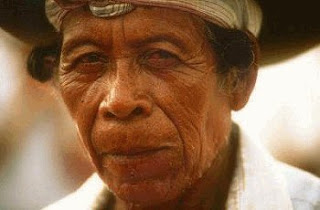
ASUNCION, Paraguay (Reuters) -- Paraguay's Congress rejected on Thursday a proposal to protect an Indian tribe that has avoided contact with outsiders.
Indian rights organizations warned that the nomadic Ayoreos are doomed to die or be run off their land by ranchers, unless their territory is turned into a reserve.
The group lives deep in the untouched forest of the northwest, known as the Chaco, growing subsistence crops and hunting wild pigs and anteaters with spears.
But the land they roam is owned by businessmen who have been encroaching steadily to raise cattle or log its valuable hardwood forests.
After a year of debate, lawmakers rejected a bill that sought to expropriate 114,000 hectares (281,700 acres) of the privately-owned land and turn it into a reserve for the Ayoreo.
"It's very bad news for the the Ayoreo and for Paraguay. Their survival is now seriously at risk," said Jonathan Mazower, research coordinator at the London-based group Survival International, which campaigns to protect tribal peoples.
Mazower called the bill the "first serious attempt" to protect the tribe, which has an estimated 5,000 members.
Since the 1960s, some of the Ayoreos have been either coaxed out of their seclusion by Mennonite missionaries who settled the area -- or forced by bulldozers to flee their small gardens.
Many died in violent clashes with settlers or from disease. But an unknown number has resisted all contact with the outside world and their existence was confirmed last year when 17 of them appeared at the edge of the scrub in search of water. They told outsiders that their relatives in the forest did not want to come out but needed help to resist encroachers.
"A very rapid and violent cultural change will be forced on these people," said Jose Zanardini, an Italian anthropologist who has worked with the Ayoreo for several years. Nobody knows exactly how many Ayoreos there are, but Zanardini estimates six or seven extended families with no history of outside contact remain.
"They will be forced to undo thousand of years of history in one or two years and go from being hunters and gatherers to working as day laborers," he said. The Ayoreo is the last tribe of its kind in South America outside the Amazon basin, where there are some 50 Indian groups that have avoided outside contact.
Paraguay's constitution recognizes the right of its estimated 90,000 Indians, or 2 percent of the population, to preserve their land, but in practice little is done. Activists say the center-right government has always sided with the powerful landowners who bought the land at bargain prices.
Deputy Francisco Rivas, who voted against the bill, said the landowners could commit to protecting the Ayoreo lifestyle, but critics were skeptical. "They feel they've lost the war against the white man," Zandarini said.


